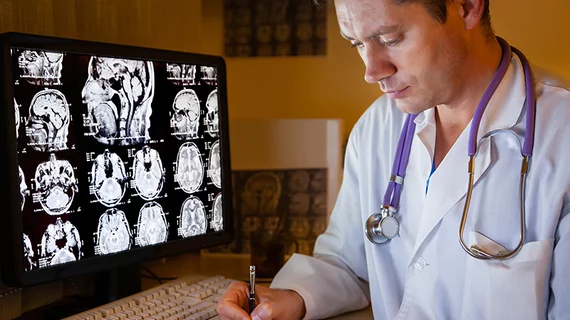Clinical decision support (CDS) tools can improve the appropriateness scores of advanced imaging orders when used in clinical practice, according to a single-center analysis published in the American Journal of Roentgenology.
In this case, CDS use resulted in “modest but significant improvement” in scores, the authors wrote, which may be important considering CMS will not reimburse images ordered without appropriate CDS documentations starting January 2021, wrote Ted E. Palen, MD, Colorado Permanente Medical Group in Denver.
The Protecting Access to Medicare Act of 2014, explained Palen et al. “requires the provision of appropriate use criteria during order entry and aims to engage medical informatics expertise and use rigorous evidence to improve quality, service, and affordability of advanced imaging.”
The researchers studied if CDS software implemented at Kaiser Permanente Colorado could improve appropriateness scores for advanced imaging. They included data from 22,279 CT or MRI studies ordered between October 2015 and February 2016.
Clinicians entered indications for each imaging order, scored using American College of Radiology (ACR) criteria one a scale of one to nine; a seven or higher was considered an appropriate order. If an order was found inappropriate the software issued a best practice alert (BPA) recommending a different plan of action.
Results showed an improvement in the mean proportion of appropriate exams orders, jumping from 77% before CDS was implemented to 80.1% afterwards. The proportion of order changes requested by the radiology department decreased, although non-significantly, from 5.7% before CDS to 5.3% after implementation.
“In conclusion, we found that primary care clinicians responded to CDS by a modest increase in the appropriateness scores of image ordering even when baseline appropriateness scores were high,” the researchers wrote. “CDS systems hold promise to improve the quality of image ordering in clinical practice and may have impacts on patient outcomes and organizational efficiency that deserve further investigation.”

